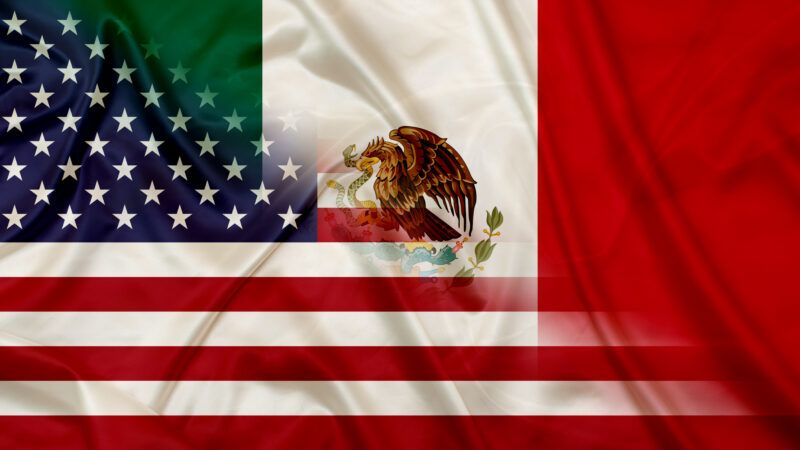For the First Time in 80 Years, the U.S. Denies Mexico's Request for Water
The escalating dispute threatens Mexican farmers—and American consumers.

For the first time in more than 80 years, the U.S. has denied Mexico's request for water from the Colorado River, escalating tensions over a water-sharing agreement between the two nations.
The State Department says it denied the request because Mexico hasn't complied with the 1944 treaty that established the water-sharing system. That agreement requires Mexico to send 1.75 million acre-feet of water from the Rio Grande to the U.S. every five years. In turn, the U.S. must send 1.5 million acre-feet of water to Mexico from the Colorado River each year.
By the end of 2024, Mexico had delivered only a quarter of what it owed for the current five-year period, which ends in October. Mexico has been struggling with severe droughts for several years. In the first quarter of 2024, the country's agricultural production fell by 6.1 percent, according to a report from the Bank of Mexico. Activity in the north-central regions, which includes the border states of Chihuahua, Coahuila, and Nuevo León, fell by 3.3 percent. The country has sought emergency water deliveries to alleviate the strain on its water systems.
The International Boundary and Water Commission and Conagua, Mexico's national water utility, are addressing the request denial, Mexican President Claudia Sheinbaum told reporters.
While this is the first denied request, this is not the first time that the treaty has caused tension in U.S.-Mexican relations. In 2020, Mexican farmers revolted over sending water to the U.S. during an extreme drought.
In 2024, late water payments from Mexico to the U.S. caused the Rio Grande Valley Sugar Growers mill in Santa Rosa, Texas, to shut down. Texas Agriculture Commissioner Sid Miller told Texas Monthly at the time that "asking Mexico nicely for 20 or 25 years" hadn't worked. "We've got to get their attention somehow, with some kind of sanctions. They're gonna have to feel the pain." A bipartisan congressional delegation urged their colleagues to withhold funding to Mexico until water was delivered.
The U.S. could be within its legal rights to deny the waiver. If so, this will almost certainly harm agricultural production in Mexico, which is a significant provider of produce to the U.S. Food price hikes are already on the way, thanks to tariffs, and this could end up squeezing American consumers even more.


Show Comments (51)